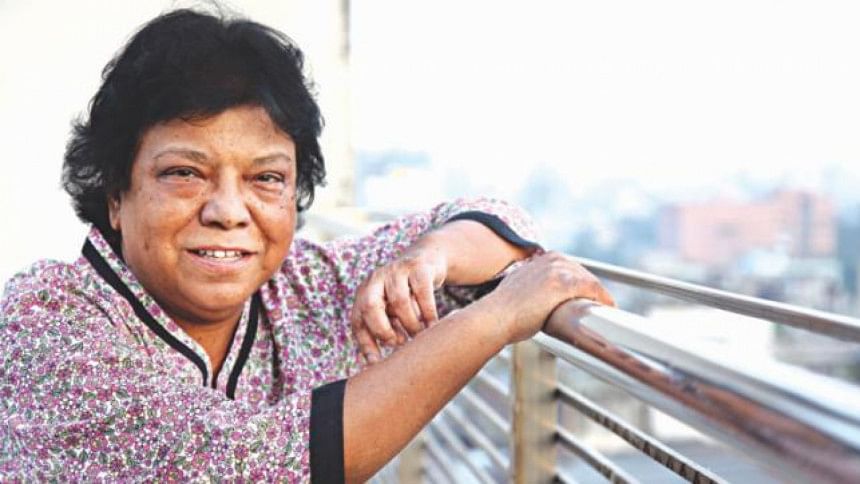Fayza Haq: Goodbye, dear friend

Back in late 1991, I had already completed six years with a Canadian development NGO and worked with South Asian NGOs which were involved with disability issues. I lived in Dhanmondi near the DRIK studio and gallery and my office was in Road 3A.
One morning, a woman bustled into my office asking if there was a guest house upstairs. She was Fayza Haq who had come to interview two visually disabled Pakistanis—wife and husband—who had come to Bangladesh to visit other organisations working with the visually impaired. On that road there was a guest house, so I guided Fayza to the people she wanted to meet. Later on, Fayza came to thank me for my help and to find out why I was in Bangladesh and why I worked with people with disabilities. Subsequently, Fayza interviewed a number of Bangladeshis with disabilities and when my office closed down in early 1992, and I left for Jakarta, she interviewed me for The Daily Star, and my positive feelings about Bangladesh and Bangladeshis were reflected in a piece titled “Bangladesh is Not a Basket Case.”
After I left for Indonesia, we kept in touch by letter and faxes, and she later came to visit me in Jakarta for a long weekend. I remember how she enjoyed having a 'cream tea' and when she returned to Dhaka she wrote an article for The Daily Star praising my cooking!
We saw a lot more of each other when I returned to Dhaka in 1998. She was one of the most thoughtful and generous of friends—greeting cards for every occasion and gifts! When I tried to stop her from giving me shirts or panjabis citing the excuse that they were not the right size, she came to see me the next time with shirt, pant or jacket pieces instead! And books, books galore from a bookshop near her house. And from her voluminous bags, often carried by a faithful helper, cakes and biscuits. She would often visit me in Banani on Fridays. Fayza would phone me to say that she would be coming at about 9 am and I would find her at my door at 6.30 a.m. “I decided to come early because your scrambled egg is the best in Dhaka, I love your half-and-half coffee and I wanted to watch a DVD.” Lo and Behold! In a day or two, more gifts would come my way to thank me for the scrambled eggs…
Her daily routine of going early to The Daily Star office and the forays to art exhibitions kept her going. After she left full-time work, her health went rapidly downhill, which was very distressing to witness. But all through, she retained her sense of humour, even if it was making fun of herself, often signing greetings cards with “Fatty R Buckle”. In the last few years, I tended to get frustrated that she was not taking enough care of herself medically, nutritionally and financially. She would get angry with me asking “Why waste your time with me?”, but once I silenced her by saying, “Just remember that 'A simple act of caring creates a ripple' because this is what you are doing all the time.” “Oh, I'll remember that,” she said.
Fayza had a lot of sadness in her own life, but she brought so much love and joy to so many others. I will certainly miss her eccentricity and love as will so many others. R.I.P. dear Fayza.
Julian Francis has had a close association with Bangladesh since the War of Liberation in 1971 and has worked in many poverty alleviation projects in Bangladesh where he continues to live and work as an independent consultant.

 For all latest news, follow The Daily Star's Google News channel.
For all latest news, follow The Daily Star's Google News channel. 



Comments